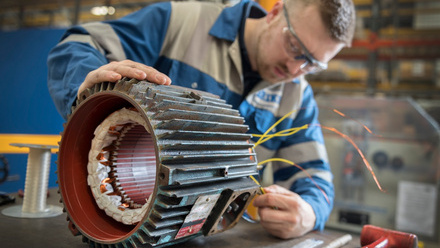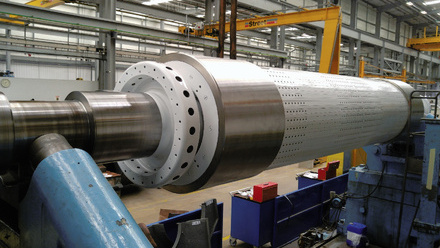We Urgently Need A Government-Led Industrial Policy
Manufacturing holds a vital place in the UK economy, contributing £224bn of Gross Value Added in 2023. It’s a major driver of innovation, with 43% of R&D investment stemming from the sector. Notably, it’s a significant contributor to job creation, employing 2.6 million people nationwide. Moreover, manufacturing offers solutions to pressing economic challenges like climate change and the volatility of global supply chains.
This sector is renowned for its high-skill, high-wage nature, boasting average wages 9% higher than the national average. Across the length and breadth of the country, manufacturing businesses of all shapes and sizes are leaving their mark. They’re not just factories churning out goods but are engines of local prosperity, injecting life into communities and driving economies forward. The sector’s heartlands are primarily in rural and regional areas that are often overlooked by the spotlight of London and the Southeast. These companies are the backbone of regions that are eager for growth.
But it’s not just about jobs; it’s about skill-building too. Every year, nearly 50,000 engineering and manufacturing apprenticeships are offered by UK manufacturers, nurturing the next generation of talent and keeping skills alive in communities. They’re not just places of work; they’re the heartbeats of towns, fostering a sense of belonging and opportunity. They attract investment, bring innovation, and shape the identity of the places they call home.
And they’re not stopping there. Manufacturers have their eyes set on the horizon, aiming to ride the wave of a netzero economy and embrace cutting-edge technologies like AI and digitalisation. Their goal? Nothing short of becoming the most innovative economy on the planet. They’re not content with the status quo; they’re striving for a future where sustainability and prosperity go hand in hand.
The sector has demonstrated resilience and adaptability in recent years, setting the stage for further growth in the future. Ambitious plans aim to boost UK competitiveness by increasing manufacturing’s contribution to GDP from 10% to 15% by the end of the next decade. Achieving this target would inject an additional £142 billion into the UK economy, fostering longterm domestic and foreign investment.
By 2050, UK manufacturers aim to achieve net-zero emissions, prioritising energy efficiency and industrial innovation every step of the way. We envision a world where every factory operates without a single sheet of paper and where automation fuels productivity and progress. To achieve all of that, we need support that compares to what other countries and governments are giving their manufacturing sectors around funding, regulation and guidance.
As such, we are now at a tipping point, and that is why Make UK’s manifesto published ahead of the election is calling for a modern, long-term industrial policy to be announced within the first 100 days. The UK is an outlier in not having one, which is the Achilles heel of the UK economy. In particular, this strategy must embrace a skills revolution throughout the education and training system to provide future talent, as well as the upskilling and re-training of the current workforce.
Such a vision is essential given the huge changes in the policy landscape, the need to shock the UK economy out of its anaemic holding pattern and take advantage of the opportunities provided by rapidly accelerating technologies, investment in infrastructure and the move to a greener economy.
A policy framework for the economy beyond 2030 is also essential to counter the march of the US and China in green technologies in particular, as well as the need to make the UK as attractive a destination as possible for investment, given the rate at which other countries are gearing up.
If the next Government were to commit to delivering such a strategy and make it a cross Government priority then I am confident that the sector can lead the economy into the 2030s and beyond.







